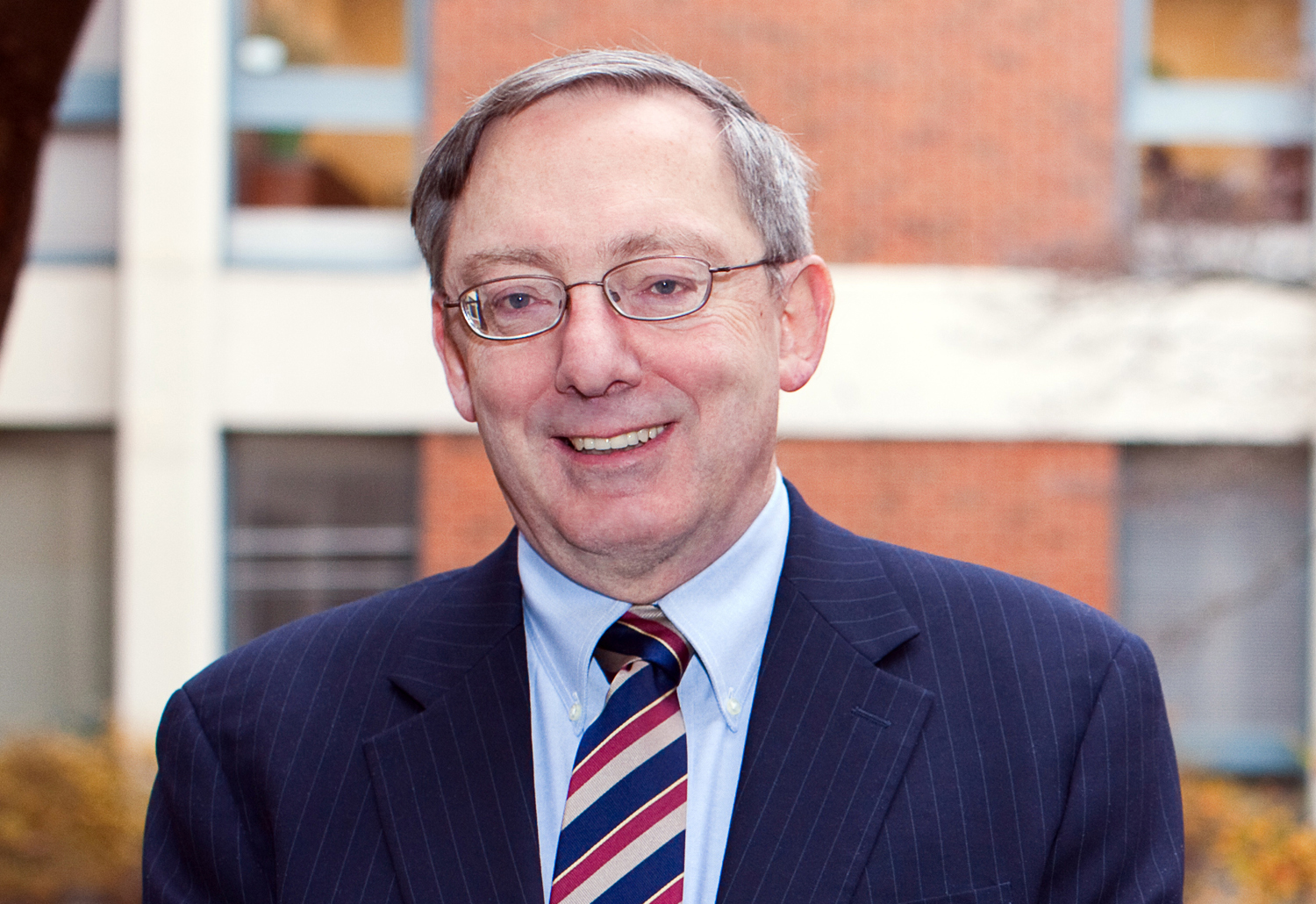May 2, 2011 — Decisions about church leadership do not belong in the courts, University of Virginia law professor Douglas Laycock said April 22 at the School of Law.
Laycock joined University of Miami law professor Caroline Mala Corbin in a debate about the "ministerial exception" – the rule that employees in important religious positions generally cannot sue their religious employers for alleged employment discrimination.
The debate previewed Hosanna-Tabor Evangelical Lutheran Church and School v. Equal Employment Opportunity Commission, which is on the U.S. Supreme Court's docket this fall. Laycock will argue on behalf of the school.
Cheryl Perich left her teaching position at Hosanna-Tabor while being treated for narcolepsy. By the time she was cleared by her doctor to return to work, the school had filled her former position and asked her to resign for the remainder of the school year with the understanding that she could return to work the following year.
Perich refused and attempted to return to work; after a confrontation with school officials in which she threatened to sue, she was fired for "insubordination and disruptive behavior," as well as her threat to take legal action.
A district court dismissed the suit, citing the ministerial exception, but the 6th U.S. Circuit Court of Appeals reversed the decision. Perich is arguing that her role is more like that of an ordinary teacher than like a minister.
"I think this case is within the appropriate boundaries because of the religious responsibilities she had," Laycock said. "She taught the religion class, she led the devotional exercises, she led the prayers."
Corbin argued that Perich's activities devoted to religion "consumed only approximately 45 minutes of the seven-hour day." She also said the ministerial exception should be abolished, so even bishops and pastors of congregations could sue to get their jobs back.
The Americans With Disabilities Act applies in this case because she was dismissed due to her disability, Corbin said.
"To the extent that there are any questions about her qualifications, there may be questions about her physical abilities, but not her spiritual abilities," she said. "If someone decides to serve God as a minister, does that mean you have to sacrifice your civil rights?"
But Laycock said attempts by the courts to meddle in the internal affairs of religious institutions violate the First Amendment.
For example, the ministerial exception allows the Roman Catholic Church and Orthodox Judaism to have male-only clergy.
"The intuition that it's simply not the government's business to choose clergy and force them upon congregations runs very deep in the federal judiciary," Laycock said. "And I think that is very sound."
The ministerial exception will prevail in this case, Laycock said. "Having a religious leader imposed on you against your will that you don't have confidence in anymore is a serious free exercise problem, and I think it's an establishment problem."
Laycock joined University of Miami law professor Caroline Mala Corbin in a debate about the "ministerial exception" – the rule that employees in important religious positions generally cannot sue their religious employers for alleged employment discrimination.
The debate previewed Hosanna-Tabor Evangelical Lutheran Church and School v. Equal Employment Opportunity Commission, which is on the U.S. Supreme Court's docket this fall. Laycock will argue on behalf of the school.
Cheryl Perich left her teaching position at Hosanna-Tabor while being treated for narcolepsy. By the time she was cleared by her doctor to return to work, the school had filled her former position and asked her to resign for the remainder of the school year with the understanding that she could return to work the following year.
Perich refused and attempted to return to work; after a confrontation with school officials in which she threatened to sue, she was fired for "insubordination and disruptive behavior," as well as her threat to take legal action.
A district court dismissed the suit, citing the ministerial exception, but the 6th U.S. Circuit Court of Appeals reversed the decision. Perich is arguing that her role is more like that of an ordinary teacher than like a minister.
"I think this case is within the appropriate boundaries because of the religious responsibilities she had," Laycock said. "She taught the religion class, she led the devotional exercises, she led the prayers."
Corbin argued that Perich's activities devoted to religion "consumed only approximately 45 minutes of the seven-hour day." She also said the ministerial exception should be abolished, so even bishops and pastors of congregations could sue to get their jobs back.
The Americans With Disabilities Act applies in this case because she was dismissed due to her disability, Corbin said.
"To the extent that there are any questions about her qualifications, there may be questions about her physical abilities, but not her spiritual abilities," she said. "If someone decides to serve God as a minister, does that mean you have to sacrifice your civil rights?"
But Laycock said attempts by the courts to meddle in the internal affairs of religious institutions violate the First Amendment.
For example, the ministerial exception allows the Roman Catholic Church and Orthodox Judaism to have male-only clergy.
"The intuition that it's simply not the government's business to choose clergy and force them upon congregations runs very deep in the federal judiciary," Laycock said. "And I think that is very sound."
The ministerial exception will prevail in this case, Laycock said. "Having a religious leader imposed on you against your will that you don't have confidence in anymore is a serious free exercise problem, and I think it's an establishment problem."
Media Contact
Article Information
May 2, 2011
/content/uva-law-professor-will-defend-ministerial-exception-supreme-court-case

